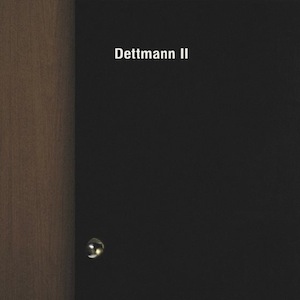Marcel Dettmann Dettmann II
Marcel Dettmann gets mixed reviews when he ventures into album territory. It’s understandable; over the […]

Marcel Dettmann gets mixed reviews when he ventures into album territory. It’s understandable; over the course of a full-length, his music doesn’t venture far beyond the pure, floor-focused loop techno he pushes on his 12″s. Very few ideas extend beyond eight bars, and his tracks squiggle and wobble along within strictly defined parameters. As such, they mix superbly with other techno records that also don’t have very much vertical information. This holds true on Dettmann II, which follows 2010’s Dettmann. Internally, his music has indeed changed, albeit very subtly—there’s an unexpected softness that offers new ways of hearing his music, but it’s unclear who will stick around to figure that out. What’s more important for the purposes of listening to Dettmann II is that the conversation around techno has shifted enough for listeners who have never stepped foot inside Berghain to realize the club and its residents aren’t a dark-techno monolith. In 2013, a Dettmann album can, without changing anything particularly notable, offer a strangely comforting home-listening experience of its own.
Dettmann II, despite its unexpected quietness, is so straight-up that it makes labelmate and co-resident Marcel Fengler’s Fokus album from earlier this year sound like Maxinquaye. But Dettmann forges some pretty awesome tools here, which are all the more powerful for keeping any obvious payoff at bay. Combined with his customary restraint, it’s enough to make a spritz of reverb sound like a crazy release of energy, as happens on the gently snaking “Ductil.” Dettmann has long favored queasy timbres, and an eerie incandescence marks II as much as his previous work. It’s rewarding to listen to these 12 tracks not as techno music per se, but as if they were simply the sound of some alien-engineered internal-combustion engine humming along.
Overall, the experience of listening to II recalls Terrence Dixon’s From the Far Future Pt. 2 more than the original Dettmann. This is a subtle index of progress. Both Dixon and Dettmann solicit a drowsy, middle-distance stare into convoluted, brown-hued thickets of loops. “Lightworks”‘ half-mumbled melody could chatter on for twice its five-minute length with little objection. Likewise, when Dettmann drops in sounds sourced from the real world—”Soar”‘s breaky snares, or unexpected hits of cavernous industrial clatter, like the sound of someone breaking into a storage unit—they follow the same knotty, post-human logic to a supremely hypnotic place. II is definitely not banging techno—it’s more like Swiss watchmaker techno. The music serves somewhat hard-to-discern ends, but the album’s satisfaction has as much to do with Dettmann’s unique way of fitting the cogs together as it does with serving imagined techno masters.

